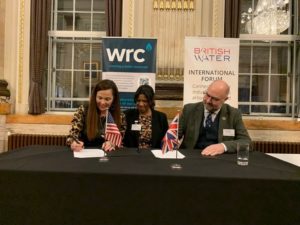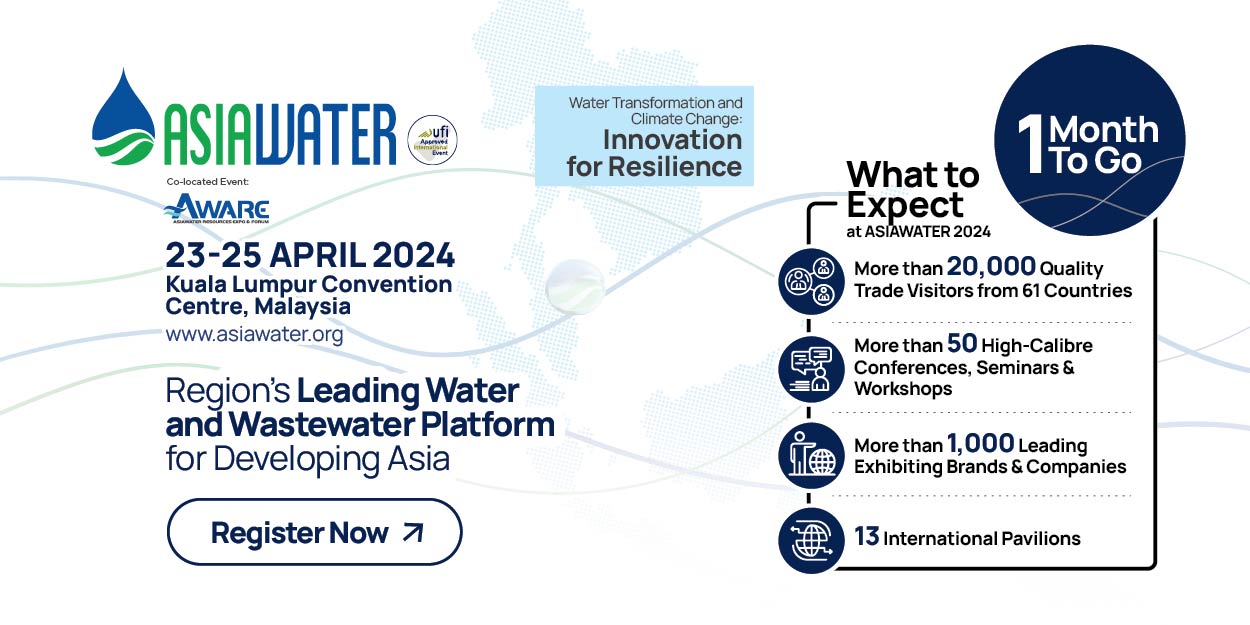Merger Marks New Era in Water Collaboration

Merger marks new era in water collaboration. (Image source: Water Industry Forum (WIF))
On 1 April 2022, British Water (BW) and the Water Industry Forum (WIF) announced that the merger of the two organisations was complete.
“By joining forces, we’ve created an even stronger organisation that can deliver ever greater value for all our members, key stakeholders, partners, and the sector as a whole,” said Chris Loughlin, chair of British Water. “There is tremendous synergy to be gained from bringing our respective strengths together.”
The merger will increase the range of services on offer, strengthen membership support, and enhance the opportunity for challenge-led thought leadership, which will provide greater authority and a stronger voice both nationally and internationally – elements that are only growing more essential in the current economic climate.
Dr Mark Fletcher, chair of Water Industry Forum said, “We are two strong, respected and financially stable organisations that, together, can provide a single point of focus in the water sector, with our four forums addressing both the UK and international water markets. The merger will provide efficiencies through eliminating duplication of effort, broadening our membership and opening access to our combined range of services.”
BW and WIF began exploring the possibility of a potential merger in 2020, and following detailed discussions and due diligence, it became clear to both boards that the timing and rationale for pooling resources was so compelling that in 2021 the organisations recommended to their respective members that they proceed with a merger.
“It has been made possible through the commitment of a key team of senior representatives from British Water and the Water Industry Forum, under the wise and dedicated leadership of Tony Conway, a highly respected non-executive director of both organisations,” added Fletcher.
A proposed operating model and governance framework have been developed to support the activities and priorities of the merged organisation, and importantly to preserve the Water Industry Forum’s integrity and independence - enabling it to maintain the trust and respect it enjoys throughout the sector.
The Water Industry Forum will remain as a not-for-profit limited company, operating as a subsidiary of British Water. Its management board will be bound by a code of conduct guaranteeing its independence and neutrality, and its directors will also be required to adhere to a code of ethics, with everyone’s integrity and impartiality assessed on an ongoing basis.
A harmonised subscription model will be introduced during a post-merger transition period. Subscriptions will increase for a small minority of members, with any increase phased in over an extended period. The merger of these two organisations aligns with the direction of travel throughout the water sector.
For example, Water UK’s discussion paper Developing a 2050 Vision for the Water Sector describes a need “for the sector, government and regulators to build on current areas of joint work and collaborate more effectively to accelerate the rate of positive change. The status quo and incremental approaches will not be enough.”
This sentiment is underpinned by a questionnaire across the UK water sector representative organisations co-ordinated by the Water Industry Forum, which demonstrated an overwhelming support for closer working and increased collaboration.
“British Water and WIF have proud histories of achievements, for and on behalf of their members and the sector,” added Loughlin. “We know that by combining our respective strengths we can create a new and even stronger organisation which will deliver added value for all our members, key stakeholders and partners, enabling us to respond most effectively and efficiently to the unique challenges and opportunities ahead of us all.”
Source: British Water







